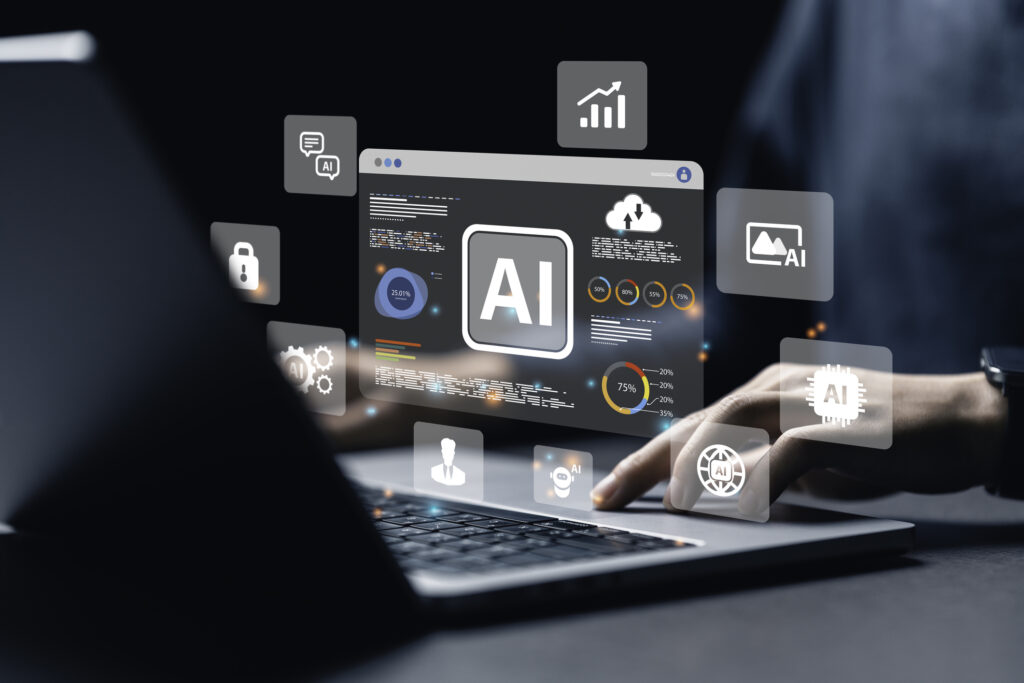Artificial Intelligence (AI) and Machine Learning (ML) have changed the approach of numerous companies to data analytics by broadening the scope of what’s possible. As a data analytics firm leveraging AI, we stand at the forefront of this evolution. This article will explore how AI is reshaping the landscape of data analytics and what the future may hold for businesses seeking to harness the power of AI-driven insights.
Enhanced Predictive Analytics
The application of AI in data analytics has exponentially improved predictive analytics capabilities. AI algorithms can sift through massive and complex datasets much more efficiently than human analysts, identifying subtle patterns that inform future projections. For example, these enhanced predictive models are instrumental for retailers in anticipating demand trends, allowing them to optimize stock levels and reduce waste. Similarly, AI can assimilate numerous variables to forecast market shifts in the financial sector, enabling traders to make better investment decisions. The precision of AI-driven predictions allows businesses to allocate resources more effectively and gain a competitive edge.
Real-time Decision Making
One of AI’s most critical advantages to data analytics is the capacity for real-time decision-making. By instantaneously processing and analyzing data streams, AI provides actionable insights when they are most valuable. This has profound implications for industries like logistics, where being able to adapt routes and schedules on the fly can result in significant cost savings and efficiency gains. Additionally, in high-stakes fields such as healthcare, real-time data analysis can mean the difference between life and death, allowing for immediate clinical decisions during patient care.
Prescriptive Analytics
While predictive analytics can forecast what might happen, prescriptive analytics uses AI to suggest how companies can make it happen. AI can model various scenarios based on a vast array of data points and then prescribe actions that align with desired business outcomes. These AI systems can factor in constraints and business rules to recommend the best course of action, whether optimizing a supply chain or customizing marketing strategies to consumer segments. This proactive approach to analytics helps predict the future and actively shapes it.
Customization and Personalization
The power of AI to tailor experiences to individual users is a game-changer for customer-centric industries. AI enables companies to offer highly personalized recommendations and services by analyzing customer behavior, purchase history, and preferences. This level of personalization is particularly evident in online platforms where AI algorithms can suggest content, products, or services that align with individual user preferences, enhancing user engagement and satisfaction.
Automation of Routine Tasks
The automation capabilities of AI in data analytics are perhaps the most tangible in day-to-day operations. By taking over repetitive and time-consuming tasks, AI allows human analysts to concentrate on more strategic issues that require human insight and creativity. This improves operational efficiency and allows employees to engage in more fulfilling and impactful work. The ripple effects of this can be seen in improved employee morale and retention rates.
Risk Management
AI’s ability to identify and manage risk is incredibly valuable for companies across all sectors. It can detect anomalies that may signal fraud, operational disruption, or cybersecurity threats, enabling businesses to preemptively address these issues before they escalate. This predictive risk management can save companies from significant financial and reputational damage.
Ethical and Privacy Considerations
As AI reshapes data analytics, the ethical implications grow more pronounced. Data privacy, security, and ethical use are top concerns that companies must address. Companies that prioritize ethical considerations in their AI initiatives will not only comply with regulatory requirements but also build trust with their stakeholders and customers. This trust is a crucial component of customer relationships in the digital age.
The Future Is Now
The transformation brought about by AI in data analytics is not an event on the horizon—it’s happening now. Our firm’s commitment to leveraging AI places us at the cutting edge of this transformation, enabling us to empower businesses to navigate the complexities of change. By converting data into foresight, we help businesses stay ahead of the curve, ensuring they are not just participants but leaders in their respective industries.
The intersection of AI and data analytics is an exciting frontier full of opportunities for innovation, efficiency, and growth. As the capabilities of AI continue to evolve, the potential applications in data analytics are only limited by our imagination. With a strategic approach to AI, businesses can unlock new levels of performance and insight, propelling them towards a successful future.
If you are interested in learning about how AI in Data Analytics can apply to your organization, we have an AI Workshop that provides our clients with an actionable roadmap to deploying AI.









